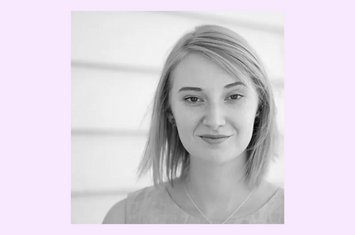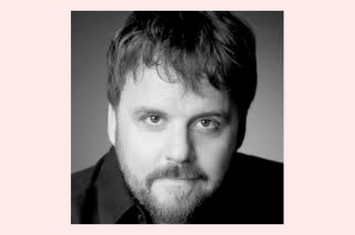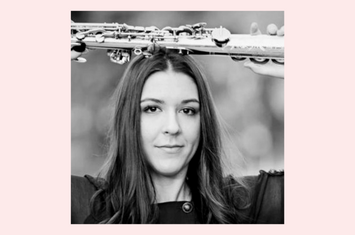
Madeline recently completed her thesis on the Reception of Shostakovich in France, which draws upon archival research from the National Library of France and the International Association for Shostakovich Studies in Paris. Her other interests include feminist musicology, historical music criticism, finding the best brunch in Melbourne, and binge-watching Law and Order: SVU.
Madeline has been writing for CutCommon Magazine for a couple of years as their Trends Editor. CutCommon is an online platform for Australian Musicians to connect and share their unique stories. She writes stories that are equal parts educational and enjoyable. Madeline's focus in music is Musicology, but in the past, she also successfully achieved AMEB Grade 7 Oboe and AMEB Grade 3 Theory. We talked to Madeline Roycroft about her music career.
How old were you when you discovered your love for all things music?
My mother maintains that I had the best dance moves in my 'Music for Tinies' class, but I wasn't actively involved in music until I started learning recorder in primary school. I distinctly remember being told off in Grade 4 music class for "showing off" (I had learned eight more bars of Ode to Joy than we needed to). If I had known back then that recorder was a serious solo instrument, I might have continued with it, but I began learning oboe when I started high school so I could play in the concert band.
Tell us about your passion for historical music criticism.
I first became interested in this area after reading the memoirs of Hector Berlioz in my second year of university. Contemporary music criticism tends to shy away from outspokenness and controversy, so I found Berlioz's biased and uncompromising opinions quite hilarious and liberating to read. When it came time to choose my own specialisation for research, nothing had interested me more than the music and politics of the Soviet Union, so I knew it had to relate to Shostakovich. Yet he is one of musicology's most written about subjects, so I came to the conclusion that a reception study would be a valuable way for me to contribute to the scholarship. Now I get to read and translate endless 20th-century reviews in which French critics share inflammatory opinions on Shostakovich's music, and I couldn't be happier.
Your thesis is on the Reception of Shostakovich in France – how did researching music in France differ from your experiences in Australia?
For me, the biggest difference is the libraries. Australia is still a young nation, so it's not a fair comparison. However, gaining access to the immense amount of historical material meticulously stored within centuries-old buildings is an incredible experience that I am very privileged to have had. However, there is something to be said for feeling comfortable in a library, the way you do in your home city. I don't think I've ever left an interaction with a French librarian without feeling like the world's biggest idiot, but I tell myself this is a necessary trade-off for good research.
As CutCommon's Trends Editor, does this allow you to explore issues of importance to you, such as feminist musicology?
Great question! Firstly, I have a wonderful editor-in-chief who gives me a lot of freedom, meaning I've been able to write about things I think are fun: women in music, Erik Satie's crazy quirks, composer love affairs, etc. We try to line up my 'listicles' with celebratory days or milestones, which has worked particularly well on International Women's Day over the last two years. In 2016 I compiled a countdown of 10 badass women in music, and one of the entries was Susan McClary—a huge, controversial voice in feminist musicology—so that gave me a bit of a thrill. It genuinely gives me satisfaction when people enjoy these articles because a lot of research goes into them. It's like a music history lecture disguised as clickbait.
AMEB will release a revised oboe syllabus later in 2017. Can you tell us about the local oboe community?
I think I've established with my previous responses that I'm a bit of a music nerd, so I'm just going to shamelessly begin by saying how excited I am for this new oboe syllabus. I'm in a terrible habit of giving students the same pieces I played for my AMEB exams (tried and tested, I suppose). But I've heard a few incredible commissions for oboe in recent years, so I can't wait to explore the new repertoire. The oboe community in Melbourne is great because it's just so small. It's probably rather large compared to other Australian cities, but everyone knows everyone, so it doesn't feel that way. I have friends who play the oboe... When I think back to my high school days (being the only oboe student in the area), that is something I never thought I'd say!
Do you have any tips for anyone who might be considering studying musicology?
Do it! I understand that compulsory music history subjects can turn students off musicology, but it's a different experience when you're honing in on your own area of interest. Contributing something new to the academic world is very rewarding, and I know I've learned a lot of life skills in the process. What has helped me a lot recently is spending time in communal office space with other postgraduate students. It's easy to feel alone when you're writing a thesis, but the solidarity of having someone working on their own project alongside you is comforting and motivating.
Is there any relation between learning to speak a foreign language and learning to play an instrument? If so, what are these similarities?
I think I need a more scientific mind to accurately answer this question, but my experience has been that the process is very similar. You attend language classes, much like music lessons. You learn the grammar patterns like you'd learn good technique on an instrument – you can still write, speak or indeed play without mastering it, but it will never be top quality if you don't put the time in! Lastly, to become fluent in the language, you just need to practise talking with others. For the sake of continuing the analogy, it'd be like spending all your time in a practice room without ever playing in an ensemble – there would be aspects of the craft that you simply hadn't mastered.
What's in the pipeline for you in 2017, and where can we read more of your writing?
I'm currently in the process of converting my Master's project to a PhD, so I'm attempting to scale back work commitments for the rest of the year in order to focus on my research. I am very excited for the first weekend in September when I'll be heading up to Bendigo for the Festival of Exploratory Music (I'm sure this venture will receive some coverage on the CC blog!). I'm also somewhat nervously looking forward to December when I'll be in Auckland presenting at the joint conference of the Musicological Societies of Australia and New Zealand. Finally, I'm ending the year with an orchestra tour of China across the Christmas and New Year periods. You can read more of my writing in RealTime, an online contemporary Arts magazine to which I contribute the odd live music review. I'm currently preparing a super-exciting composer interview for the 2017 edition of Context, The University of Melbourne's Journal of Musicology. If you're a radio listener, you can also tune into my ramblings about music on 3MBS Australian Sounds, which I present and program fortnightly at 10pm on Fridays.




